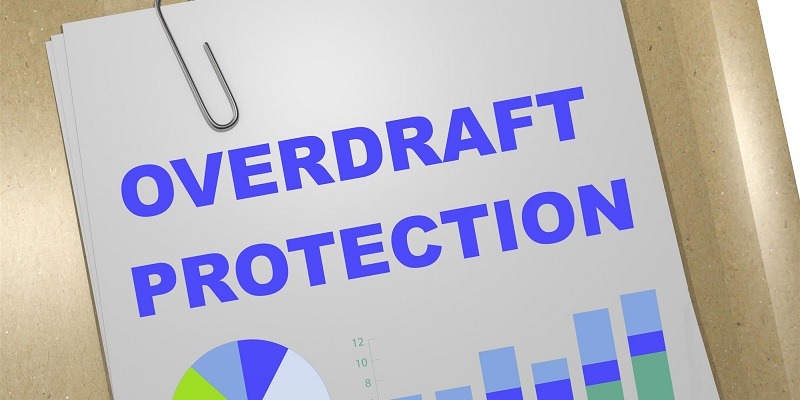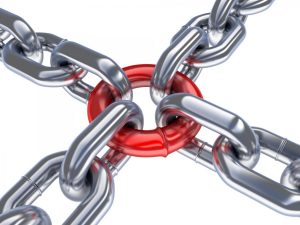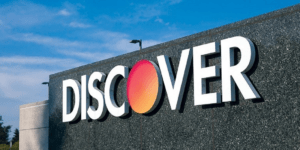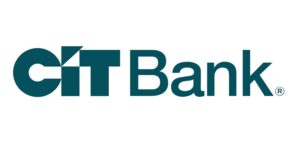 For those who own a bank account, you are probably familiar with those monthly bank statements. Often times, we tend to skip past the details and just worry about the balance displayed.
For those who own a bank account, you are probably familiar with those monthly bank statements. Often times, we tend to skip past the details and just worry about the balance displayed.
In other words, we tend to miss the details and sometimes will miss if there was an overdraft fee. This could be due to a paycheck received or a transfer of money into your account.
This was the official amount the Consumer Financial Protection Bureau uncovered as they began to start taking record of one of the simplest fees to avoid: The Overdraft Fee. This acts as a line of credit for a debit card when a transaction exceeds the remaining balance of the account. Even the smallest transaction can push you to the edge.
When the bank authorizes a payment that exceeds the available balance on your checking account, the bank will levy an overdraft fee to overcompensate the service provided.
Why Do Banks Charge The Fees?
The reason why these banks charge these fees is for many reasons. The biggest reasoning is because if you have an important payment due, but not enough money in your bank account, it may be safer to take the overdraft fee.
Consequently, you may end up appreciating that payment they let you authorize(with an overdraft fee) rather then missing a payment, such as an electricity bill or an important payment.
What Financial Institutions Charge
For easy browsing and access to information, we’ve created a table that helps you quickly identify banks and their overdraft fees. Some banks stated here have a policy that if the overdrawn amount is less than $5 at the end of the day, you’ll still be exempt from their overdraft fee. This is to mitigate any sort of excessive fee for any small transaction that may occur.
For example, they won’t charge you $34 dollars for meal that cost $3. If you’re looking for any additional information about the banks and any deals that they may have as well, be sure to check out our reviews for a more in-depth analysis!
| Financial Institution | Overdraft Fee | Reviews |
| Ally Bank | $25 | Review |
| Associated Bank | $35 | Review |
| Bank of America | $35 | Review |
| BB&T Bank | $36 | Review |
| BBVA Compass Bank | $38 | Review |
| BMO Harris Bank | $35 | Review |
| Boeing Employees Credit Union | $25 | Review |
| Chase Bank | $34 | Review |
| Citibank | $34 | Review |
| Citizens Bank | $35 | Review |
| Fifth Third Bank | $37 | Review |
| HSBC Bank | $35 | Review |
| KeyBank | $39 | Review |
| M&T Bank | $38.50 | Review |
| PNC Bank | $36 | Review |
| Regions Bank | $36 | Review |
| Santander Bank | $35 | Review |
| SunTrust Bank | $36 | Review |
| TD Bank | $35 | Review |
| U.S Bank | $36 | Review |
| Wells Fargo Bank | $35 | Review |
Tips & Tricks on Avoiding Bank Overdraft Fees
Opt-out of Overdraft Protection:

The best way to avoid having an overdraft fee is to not give the bank the option to charge you in the first place. Legally, a bank is required to ask whether you want to sign up for overdraft protection, but nearly half of the time, consumers don’t really know what they’re getting into.
Most people have agreed that it would be better to be declined and have the ability to transfer funds across accounts, than to pay $38 for a singular cup of coffee.
Regulate and Manage your accounts closely: Being conscious of where you are financially right now is crucial to understanding and controlling where you want to be in the future. Many banks offer services like Online and Mobile banking which gives you instant access to the current balance of your account.
Simply monitoring the account and making sure you have enough takes a second out of today, that could potentially save you hundreds tomorrow. Additionally some banks offer a system of alerts, that will inform you when your balance is low, you can take preventative measures before they charge you.
 Link to another account: The issue could also be about where your funds are, instead of how much. You could have the money in your savings, but if the checking account you’re charging a transaction to doesn’t have enough funds, you would still pay the price.
Link to another account: The issue could also be about where your funds are, instead of how much. You could have the money in your savings, but if the checking account you’re charging a transaction to doesn’t have enough funds, you would still pay the price.
Instead of depending on the bank as a last resort and final line of credit, you could depend on your other accounts, and it would be auto-debited from those. The overdraft protection was intended to act as a safety net, but by creating your own, via linked accounts, you prevent fees like these.
 Avoid using debits cards: One of the solutions is to just convert to either cash payments, or with a prepaid debit card. When using a debit card, it’s a lot more difficult to assess the amount of money you’re spending in a period of time, because all the transfer of funds is happening behind-scenes electronically.
Avoid using debits cards: One of the solutions is to just convert to either cash payments, or with a prepaid debit card. When using a debit card, it’s a lot more difficult to assess the amount of money you’re spending in a period of time, because all the transfer of funds is happening behind-scenes electronically.
When you pay in cash, you see the physical amount of money you have in front of you, so you’re constantly aware of what you can and can’t afford. Using a prepaid debit card is a little bit less direct, but this way, you have no chance of getting charged with an overdraft fee.
Are the Banks Exploiting You?
Some people have that opinion that an unarranged overdraft facility amounts to exploitation. In other words, they believe that banks should always deny transactions if there isn’t enough money in your bank account. Consequently, many people who are incurred with a charge tend to not notice them.
On the other hand, for many people, having an unarranged overdraft can be pretty useful. In other words, it means that some of your checks will not be returned “unpaid” because you are yet to receive your payment. For instance, this can be useful for people such as a start-up entrepreneur. Bankers have defended the charges repeatedly referring as an entrepreneurial reward for taking the risk to bail you out.
Above all, the most important thing is to take proactive steps to avoid bank overdraft fees. Consequently, below are some suggestions on how you can avoid them.
Understand Your Available Balance
Firstly, you will need to understand the banking terminologies and their implications. For instance, some words that you may recognize may include words like available balance on your bank statement. The available balance on your checking account refers to the most recent record your bank has of your money available in your account.
However, this balance only includes authorized payments. In other words, it does not include any transactions that may be pending. Because of this, those pending transactions that take time to process won’t be seen and thus, you won’t know how much is in your available balance. That is to say, this can cause an incorrect perspective that you have more money at your disposal.
To avoid overdraft fees and take away from the confusion, you can also simply write down the balances. Firstly, write down all the outstanding obligations and record all their transactions, such as deposits, withdrawals, or debit card purchases. Secondly, be sure to keep up to date on the debit card you may be using and actually record your actual balance.
Start To Budget And Stick To It
In other words, spend only what you have after saving. To do this, simply start small and project your upcoming expenditure for the week. Then, set aside that amount, and do your best to not need to take more away from your bank account.
Build A Buffer
Once you start learning the benefits of budgeting, you may start to notice having more cash and fewer instances of low bank balances. Additionally, you could build buffer balances to make sure that there aren’t any surprises.
However, this is not to be confused with an emergency fund. An emergency fund should be an account that contains at least six month’s worth in expenditures and also bears some form of interest.
In contrast, a buffer is like a minimum imposed operating balance. You could simply do this by starting at however much you’d like, such as $50, and gradually increase that amount over time. This will help decrease your chances of experiencing a bank overdraft fee
Have The Bank Help You
Firstly, you can set up your account to send you notifications through text or through email. These notifications can include things such as when your available balance goes below a certain amount. You can then arrange to replenish your checking account to however much you’d like before payments start coming through.
In addition, you can make sweeping arrangements with your bank and have an automatic transfer of funds from your savings account to your checking account. You can set the value this occurs at and when your balance goes below that value, it’ll add funds into your checking account to avoid bank overdraft fees.
Moreover, you can also ask the bank to link your checking account to your credit card. In short, any payment that exceeds your available balance will be charged on your credit. This will help save you from an overdraft fee.
Lastly, you can ask the bank to extend a line of credit under your checking account with different terms and charges. Consequently, be sure to note that the last two options may charge an additional fee.
Pay Attention To Bank Overdraft Fees
It is important to pay attention to your account upon your account opening process or a new checking account sign up. Many people tend to get into overdraft positions knowingly. In addition, some banks tend to take advantage of such clients and manipulate their ways of getting you to activate overdraft protection unknowingly.
In short, some banks will portray overdraft protection as an additional beneficial feature to their checking account product. They will “auto-enroll” you into the service and will cover your payments even when you are in balance in exchange for overdraft fees.
In short, opt-out of overdraft protection. Opting out of overdraft protection will ensure you of two things. Firstly, you’ll add overdraft fees. Secondly, the bank will decline or return as unpaid any transaction that you authorize without sufficient funds.
 |
 |
Bottom Line
When it comes to money, no one wants to be blind-sided by any other unexpected fees. The best way to avoid these bank overdraft fees is to be aware of the issue and proactive on preventative measures. With these four tips and tricks, you’ll be ready to take charge of your finances and save hundreds of dollars!
Additionally, for way to avoid other fees such as Maintenance and ATM fees, be sure to check out Ways to Avoid Excessive Bank Charges. Similarly, when it comes to keeping control of your account, we also have information on Best Ways to Manage Your Checking Account.
In conclusion, if you would like to see all the latest bank deals nationwide, be sure to view our full list of Bank Bonuses and find one in your area!




Leave a Reply